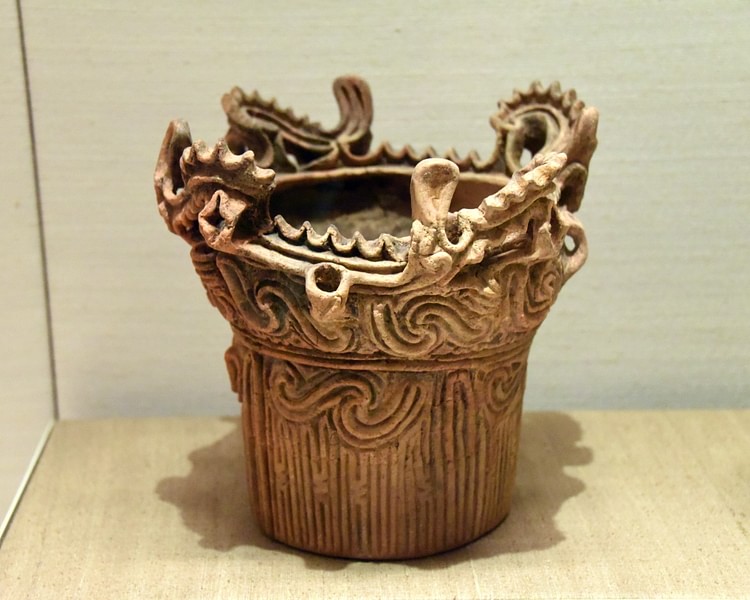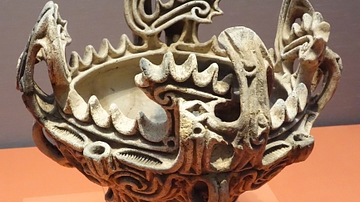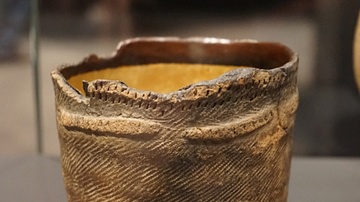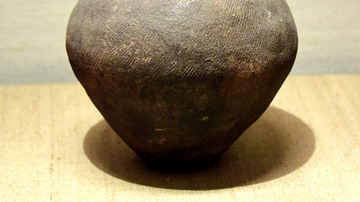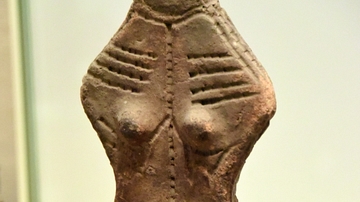Illustration
"Flame" pots, such as this, are just one type of a long ceramic tradition that continued for some 13,000 years during the Jomon period in Japan. They were made in the Middle Jomon period (3500-2500 BCE) in the area that is now modern Niigata prefecture in central Honshu. The trumpet shape, with the rim flaring wider than the base, may have helped prevent the contents from boiling over when used on an open fire. The pots are extravagantly decorated on the outside and around the rim. They often have the carbonized food on the inside and so were definitely used for cooking. Earthenware vessel. Middle Jomon period, around 3000 BCE. From Dodaira, Tsunan, Niigata prefecture, Japan. (The British Museum, London).
About the Author
Cite This Work
APA Style
Amin, O. S. M. (2018, November 29). Jomon Flame Pot from Dodaira. World History Encyclopedia. Retrieved from https://www.worldhistory.org/image/9523/jomon-flame-pot-from-dodaira/
Chicago Style
Amin, Osama Shukir Muhammed. "Jomon Flame Pot from Dodaira." World History Encyclopedia. Last modified November 29, 2018. https://www.worldhistory.org/image/9523/jomon-flame-pot-from-dodaira/.
MLA Style
Amin, Osama Shukir Muhammed. "Jomon Flame Pot from Dodaira." World History Encyclopedia. World History Encyclopedia, 29 Nov 2018, https://www.worldhistory.org/image/9523/jomon-flame-pot-from-dodaira/. Web. 02 Jul 2025.

